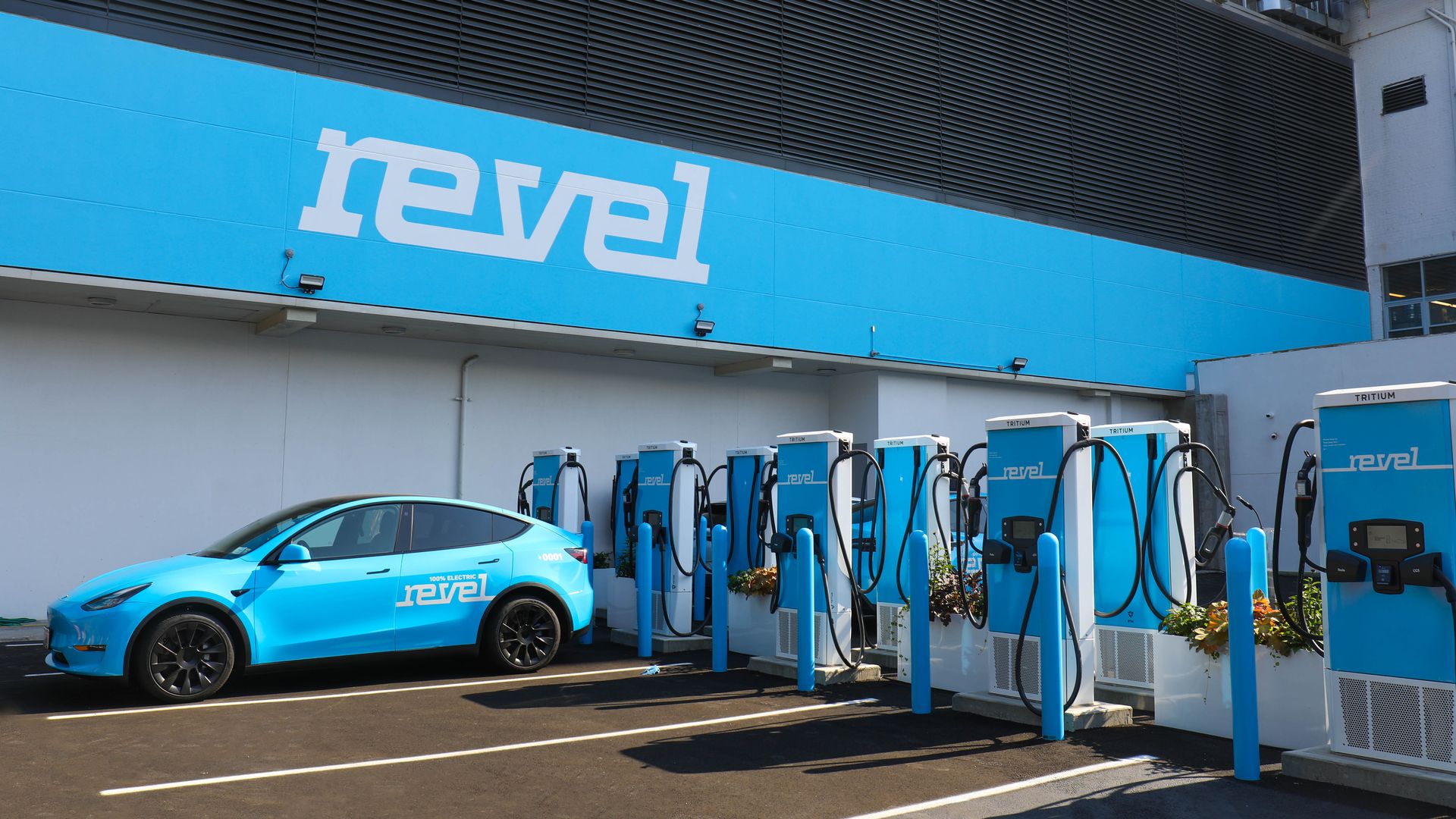Revel launches all-electric, all-employee ride-sharing service in NY
Add Axios as your preferred source to
see more of our stories on Google.

Revel's fast-charging Superhub in Brooklyn. Photo: Revel
Revel is launching a new ride-hailing service in New York City today that sets itself apart from Uber and Lyft: every car is a Tesla, and all the drivers are employees.
Why it matters: Revel's business model will test whether EVs are up to the challenge of nonstop service and whether gig workers are the only way a ride-hailing service can expect to make money.
- While Uber and Lyft say they intend to shift their networks to EVs, they've fought attempts by drivers to seek employee status — and the pay and benefits that come with it.
Driving the news: Revel will begin with 50 custom-painted Tesla Model Ys available for pickups and dropoffs below 42nd Street in Manhattan.
- Unlike the traditional ride-sharing model, the cars will be owned and maintained by Revel, and they are licensed by the New York City Taxi and Limousine Commission.
- It's launching with 150 drivers and fleet maintenance operators, all of whom will be employees of the company, with guaranteed wages and access to benefits.
- The cars will be charged at Revel's new fast-charging "Superhub" in Brooklyn, which has 25 Level 3 fast-chargers available for public use.
Between the lines: Revel, which already rents thousands of electric mopeds and e-bikes in New York, sees itself as part of a movement to electrify transportation. But the lack of charging infrastructure in big cities is a hindrance, says CEO and co-founder Frank Reig.
- "The real issue here, in cities like New York, is that if we're going to electrify rideshare and push EV adoption, there’s a huge missing ingredient. There is no charging infrastructure in cities. It doesn’t exist."
- "It needs to be built, and it needs to be built now or else no city will meet their electric vehicle target. None of them will," Reig tells Axios.
What to watch: Reig says Revel can be profitable because EVs have lower operating costs and because it is focused on dense urban areas where utilization is high and ride-sharing prices are "rational."
